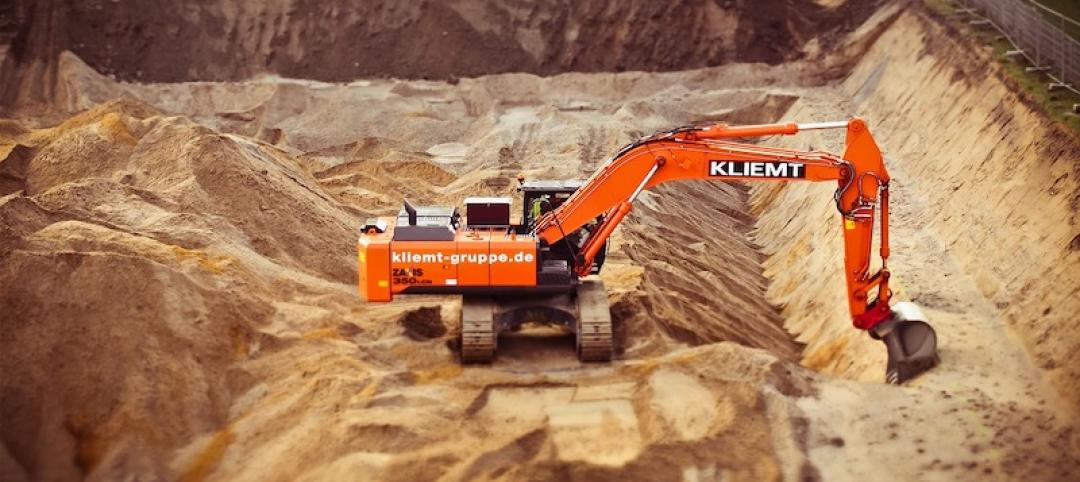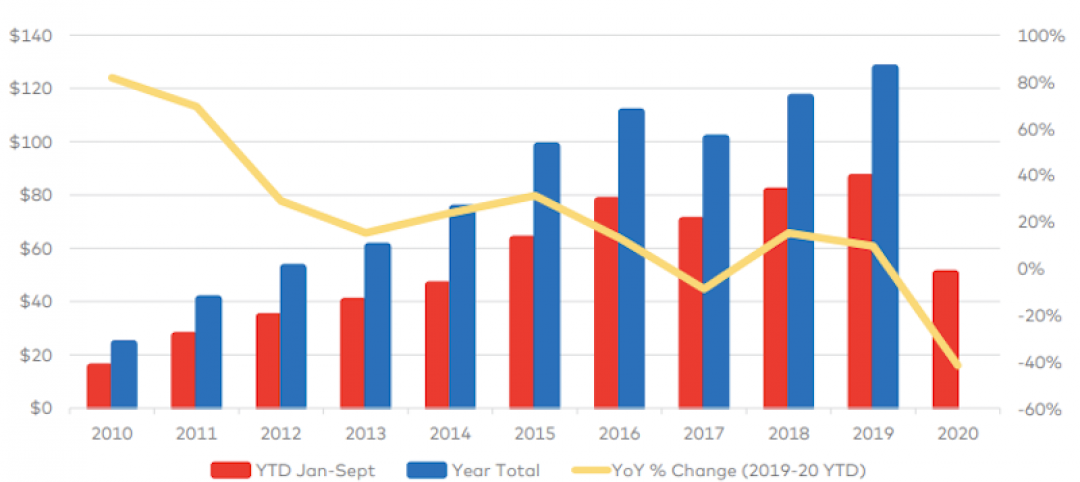Construction employment increased in 245 out of 358 metro areas between March 2017 and March 2018, declined in 67 and stagnated in 46, according to a new analysis of federal employment data released today by the Associated General Contractors of America. Association officials said that the new figures come amid questions about how a possible trade war and long-term infrastructure funding shortfalls will impact the construction sector.
"While firms in many parts of the country continue to expand, there is a growing number of threats that could undermine future employment growth in the sector," said Stephen E. Sandherr, the association's chief executive officer. "Among the top threats to future construction growth are the risk of a trade war and long-term infrastructure funding challenges."
Houston-The Woodlands-Sugar Land, Texas added the most construction jobs during the past year (10,700 jobs, 5%), followed by Phoenix-Mesa-Scottsdale, Ariz. (9,500 jobs, 9%); Dallas-Plano-Irving, Texas (7,800 jobs, 6%) and Riverside-San Bernardino-Ontario, Calif. (7,200 jobs, 8%). The largest percentage gains occurred in the Weirton-Steubenville, W.Va.-Ohio metro area (29%, 400 jobs), followed by Merced, Calif. (26%, 600 jobs); Wenatchee, Wash. (26%, 600 jobs) and Midland, Texas (23%, 6,000 jobs).
The largest job losses from March 2017 to March 2018 were in Baton Rouge, La. (-3,200 jobs, -6%), followed by Columbia, S.C. (-2,200 jobs, -11%); Minneapolis-St. Paul-Bloomington, Minn.-Wisc. (-1,700 jobs, -2%); Newark, N.J.-Pa. (-1,700 jobs, -4%) and Montgomery County-Bucks County-Chester County, Pa. (-1,600 jobs, -3%). The largest percentage decreases for the year were in Auburn-Opelika, Ala. (-34%, -1,300 jobs), followed by Monroe, Mich. (-17%, -400 jobs); Portland-South Portland, Maine (-11%, -1,000 jobs) and Columbia, S.C. (-11%, -2,200 jobs).
Association officials said that trade disputes that could arise from the President's newly-imposed tariffs and long-term infrastructure funding shortfalls could threaten future construction employment growth. They noted that many construction firms have already experienced significant increases in what they pay for steel products. Meanwhile, long-term funding shortfalls for infrastructure improvements could undermine demand for many firms' services.
"The biggest threats to future construction growth are man-made: trade wars and funding shortfalls," said Stephen E. Sandherr, the association's chief executive officer. "Fortunately, Washington officials can help ensure future economic growth by avoiding a trade war and enacting long-term infrastructure funding."
View the metro employment data by rank and state. View metro employment map.
Related Stories
Market Data | Jan 5, 2021
Barely one-third of metros add construction jobs in latest 12 months
Dwindling list of project starts forces contractors to lay off workers.
Market Data | Jan 4, 2021
Nonresidential construction spending shrinks further in November
Many commercial projects languish, even while homebuilding soars.
Market Data | Dec 29, 2020
Multifamily transactions drop sharply in 2020, according to special report from Yardi Matrix
Sales completions at end of Q3 were down over 41 percent from the same period a year ago.
Market Data | Dec 28, 2020
New coronavirus recovery measure will provide some needed relief for contractors coping with project cancellations, falling demand
Measure’s modest amount of funding for infrastructure projects and clarification that PPP loans may not be taxed will help offset some of the challenges facing the construction industry.
Market Data | Dec 28, 2020
Construction employment trails pre-pandemic levels in 35 states despite gains in industry jobs from October to November in 31 states
New York and Vermont record worst February-November losses, Virginia has largest pickup.
Market Data | Dec 16, 2020
Architecture billings lose ground in November
The pace of decline during November accelerated from October, posting an Architecture Billings Index (ABI) score of 46.3 from 47.5.
AEC Tech | Dec 8, 2020
COVID-19 affects the industry’s adoption of ConTech in different ways
A new JLL report assesses which tech options got a pandemic “boost.”
Market Data | Dec 7, 2020
Construction sector adds 27,000 jobs in November
Project cancellations, looming PPP tax bill will undercut future job gains.
Market Data | Dec 3, 2020
Only 30% of metro areas add construction jobs in latest 12 months
Widespread project postponements and cancellations force layoffs.
Market Data | Dec 2, 2020
New Passive House standards offers prescriptive path that reduces costs
Eliminates requirement for a Passive House consultant and attendant modeling.

















